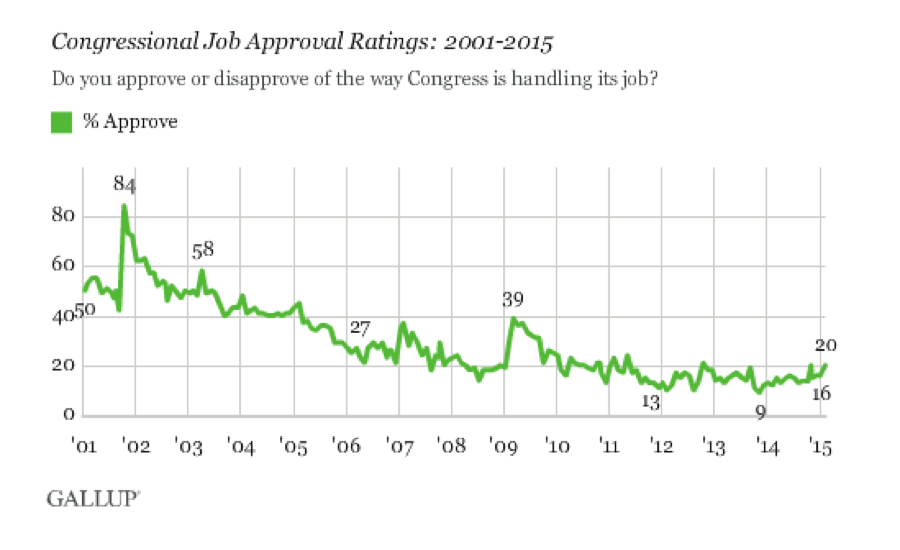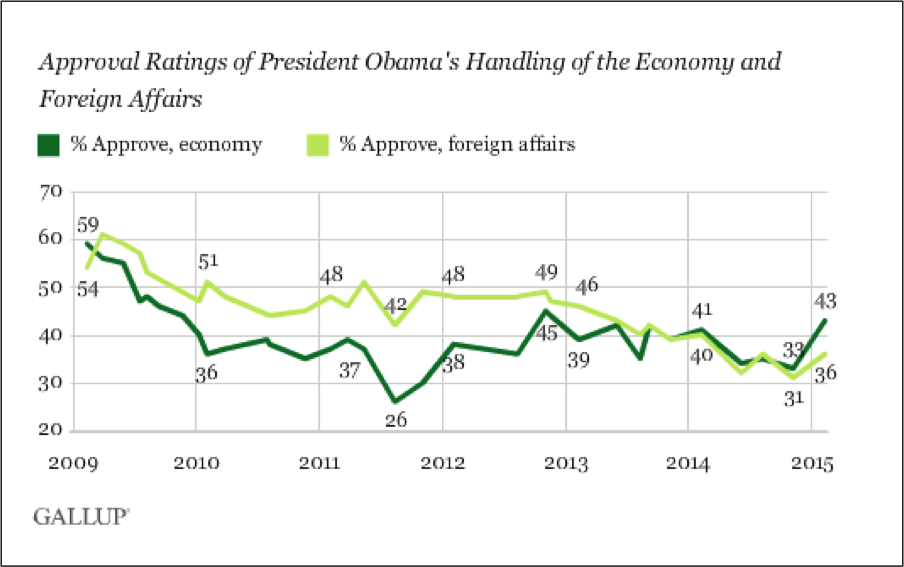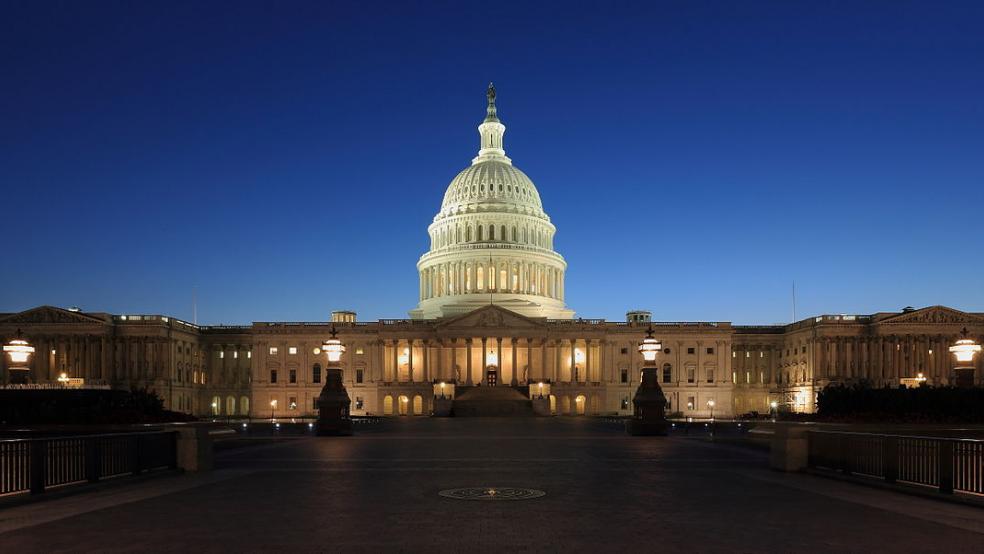President Obama and Congress are slowly climbing their way out of record-low approval ratings, despite ongoing political showdowns, relentless partisan gridlock and political hackery in Washington that has previously earned the lawmakers a reputation less likeable than cockroaches and Nickleback. (Yes, even Nickleback.)
That's according to two new Gallup polls released this week.
Related: GOP Doesn’t Blink on DHS Funding
The first, released today, shows Obama’s approval rating up 7 points to 47 percent from a low of 40 percent in November, right after the midterm elections.
Separately, Gallup reported that Congress’ rating rose to 20 percent from 16 percent at the beginning of the year--a major improvement over its record low of 9 percent following the government shutdown in 2013. Congress’s approval rating tends to be quite low: its long-term average hovers in the 30 percent range, with the exception of an 84 percent rating right after the September 11 attack.

Related: Obamacare’s Approval at Lowest Rating on Record
Obviously the new (still dismal) ratings aren’t exactly something to celebrate. But they are noticeably improving, so at least for now, public sentiment is warming toward Washington… but why?
Last year, when Gallup asked respondents to rank the reasons they disapprove of Congress, partisan gridlock came out on top.
From every angle, it would appear that D.C. gridlock is just as bad – perhaps worse than it’s ever been—with the newly Republican-controlled Congress at war with the president over his executive actions on immigration. And though the looming showdown could result in a partial shutdown of the Department of Homeland Security, Congress’s approval rating doesn’t seem to be taking much of a hit.
Gallup’s experts say the slight uptick in Congress’ popularity is in line with historical trends--Congressional approval ratings tend to be higher at the beginning of the legislative session. Gallup’s Andrew Dugan cautions that because Congress has plenty of major legislation to take up, its approval rating is likely to fluctuate significantly in the coming months.
“Given the raft of legislation that may be forthcoming in the following months -- involving authorization of use of military force in Iraq/Syria, granting the president greater power in negotiating trade deals, as well as a potentially contentious bill to fund the Department of Homeland Security -- there may be significant movement on how the public rates Congress, be it good or bad,” Dugan wrote in a blog post. “But for now, even as Washington adjusts to a new political balance, most Americans seem to be taking their time in assessing the new leadership.”
Related: Congress Ends 2014 with Near Record Low Approval Rating
Separately, Gallup credited Obama’s rise in ratings to the improving economy.
“The increase has been aided by more positive economic news, including lower gas prices, which have boosted Americans' perceptions of the U.S. economy's health to the best they have been since the 2007-2009 recession.”
Gallup also broke down the approval ratings by issue and found that while Obama’s handling of the economy received better ratings, his strategies to combat ISIS remained low.
“The more positive economic news may also explain why his economic approval rating has increased more (up 10 percentage points) than his foreign affairs approval rating (up five points) since November. While the economy is getting better, Obama continues to deal with a challenging international environment, including the Ukraine conflict, the Islamic State's presence in Iraq and Syria, as well as the ongoing threats of international terrorism, the Israeli-Palestinian conflict, and North Korea and Iran. As a result, his foreign affairs rating remains on the low side relative to his 2009-2013 ratings.” Gallup noted.

Top Reads from The Fiscal Times:





